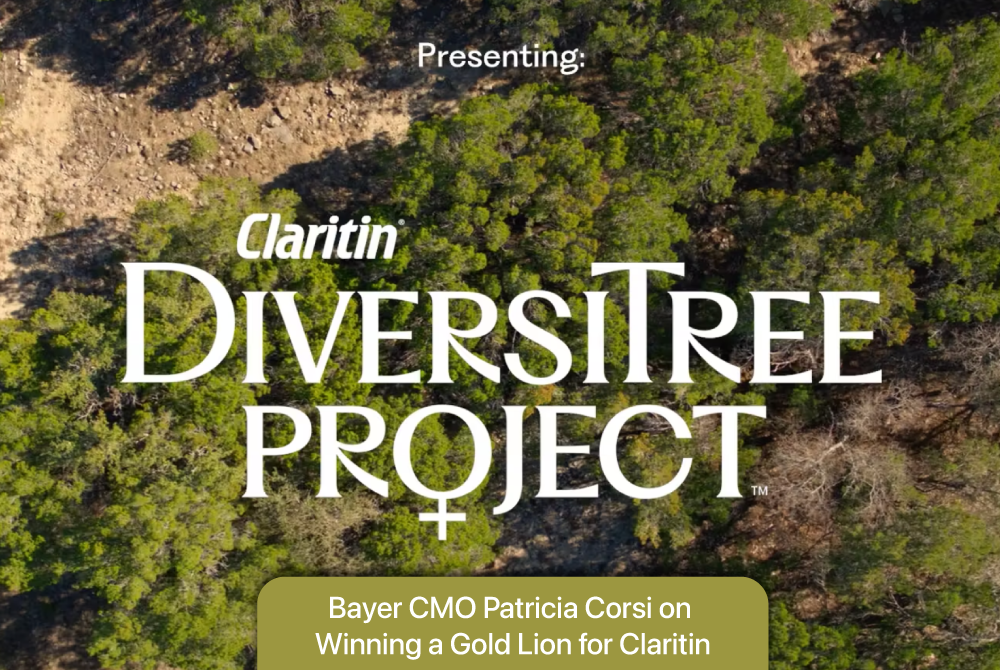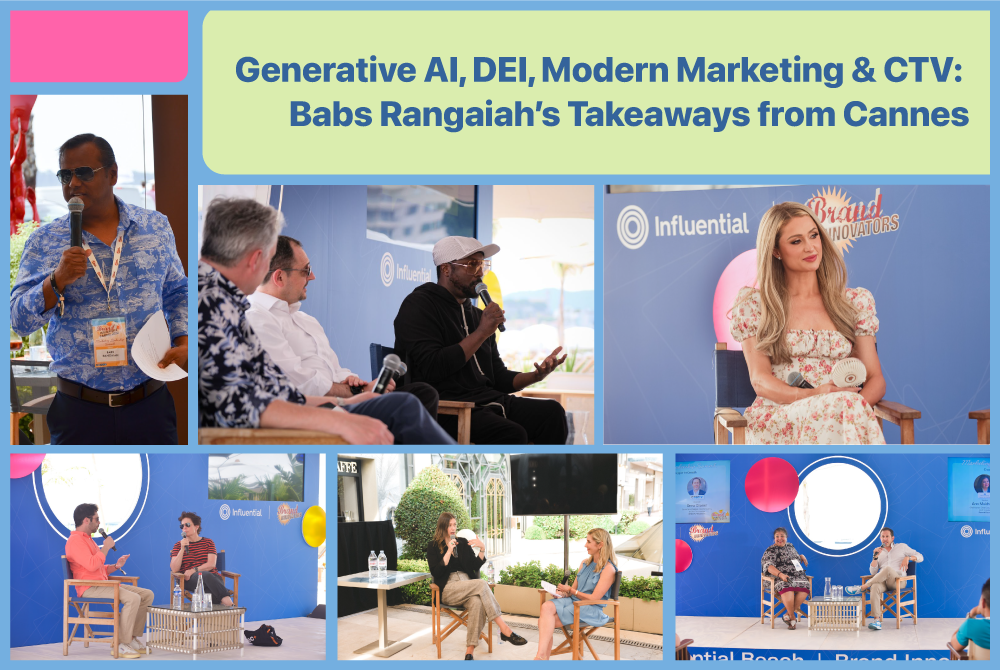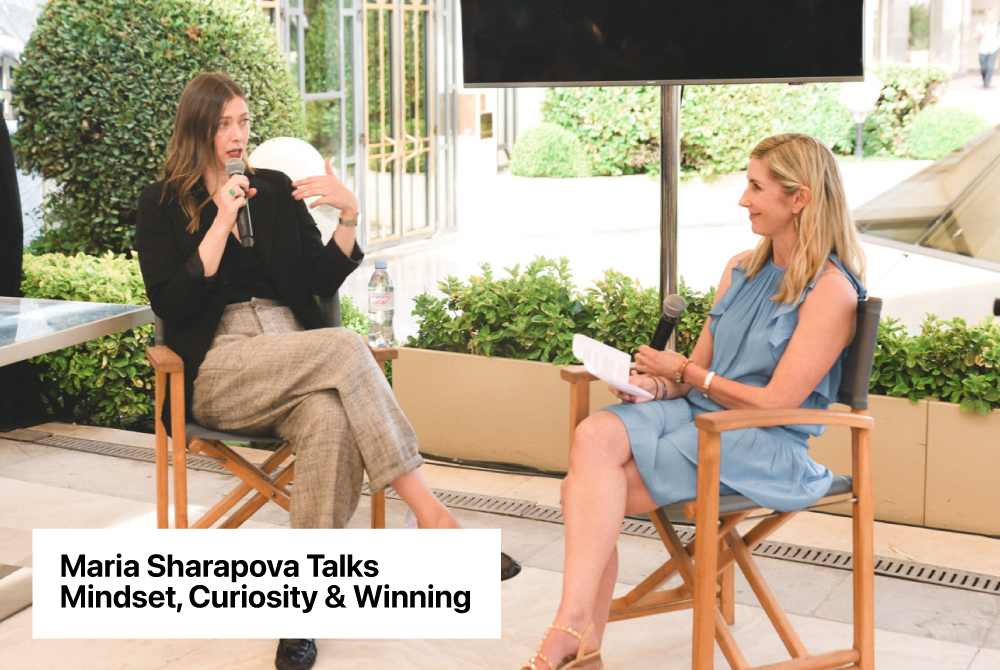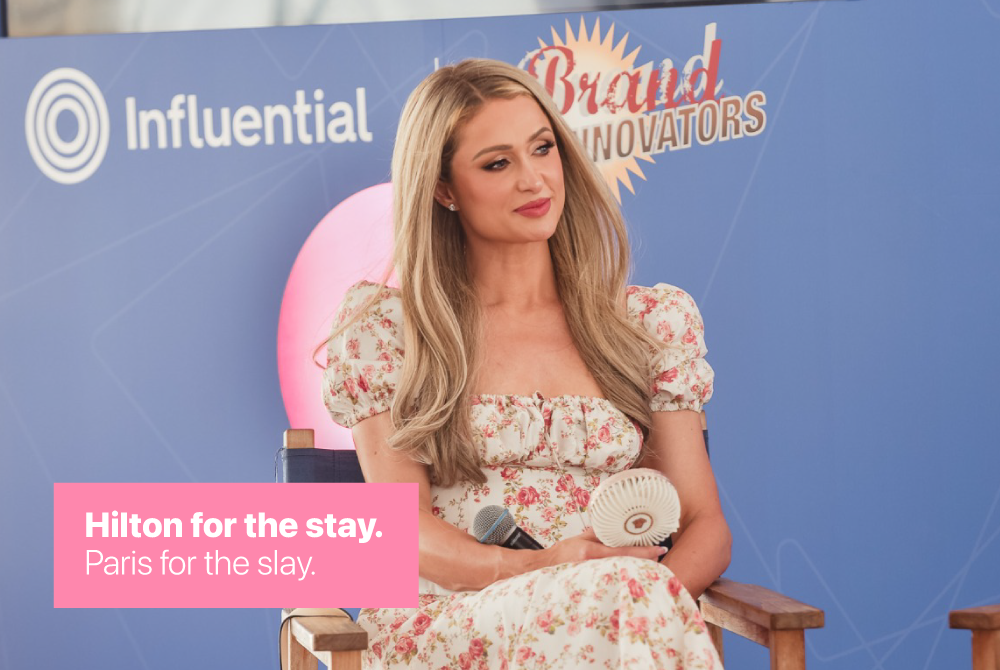What does it take to win a Gold Lion at Cannes?
For Bayer brand Claritin, it was about identifying that there is a gender gap when it comes to trees and breaking the glass ceiling as part of its Diversitree for Claritin campaign.
Seasonal allergies impact more than 30% of adults and 40% of kids in the US. Pollen levels are expected to double by 2040, according to a study in 2012. The brand discovered an interesting insight: male trees release pollen – the cause of many people’s allergies. Thankfully female trees do not. By planting more female trees in cities, allergy symptoms can be eased.
“When you look at the biggest cities, New York, Los Angeles, most of their trees are male, sometimes even 85%,” said Patricia Corsi, global chief marketing officer at Bayer. “I didn’t even know there were female and male trees. And when I heard that I said, ‘Come on, this is so good, even in nature, there is a gender gap?’ The great thing about good ideas is that they’re always the ones that make you feel a little bit nervous, but not enough to stop you.”
Many parks and backyards in the US are full of male-only trees based on a 1949 USDA report that recommended male trees be planted instead of female trees. Bayer wants to rebalance this gender gap and restore botanical balance to help Claritin’s consumer base. The company started by funding the planting of the first female forest Richmond, Virginia, one of the worst US cities for allergies in 2022. The brand will continue to plant more female trees around the country.
The effort, developed in collaboration with their agency Energy BBDO, Chicago earned the brand a Gold Lions for Health and Wellness.
“This is a fun one because it didn’t start from the strategy,” explained Corsi. “We have a program where there is no briefing, so they come up with the best ideas. They know our strategy. They know our brand’s history and brand equity and we open the field for them to come with the ideas that they think will help us to better serve our consumers and customers. Diversitree came from this program.”
“I would love to take the credit to say we briefed exactly because we wanted something that was looking at sustainability and the ecosystem, but no, we didn’t,” added Corsi. “The agency gets all the credit for coming up with this amazing insight. And the team gets all the credit from believing in it and implementing it with gusto.”
The effort supports Bayer’s overall approach to storytelling. “Our first job in storytelling is relying on the science,” said Corsi. “Because when you’re talking about health, our biggest role is to educate people on how to take good care of their health with that guarantee that the product is going to work.”




